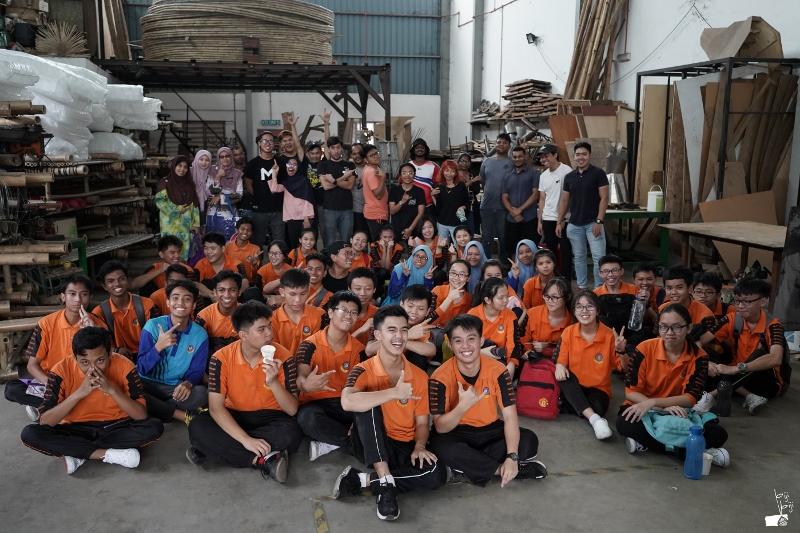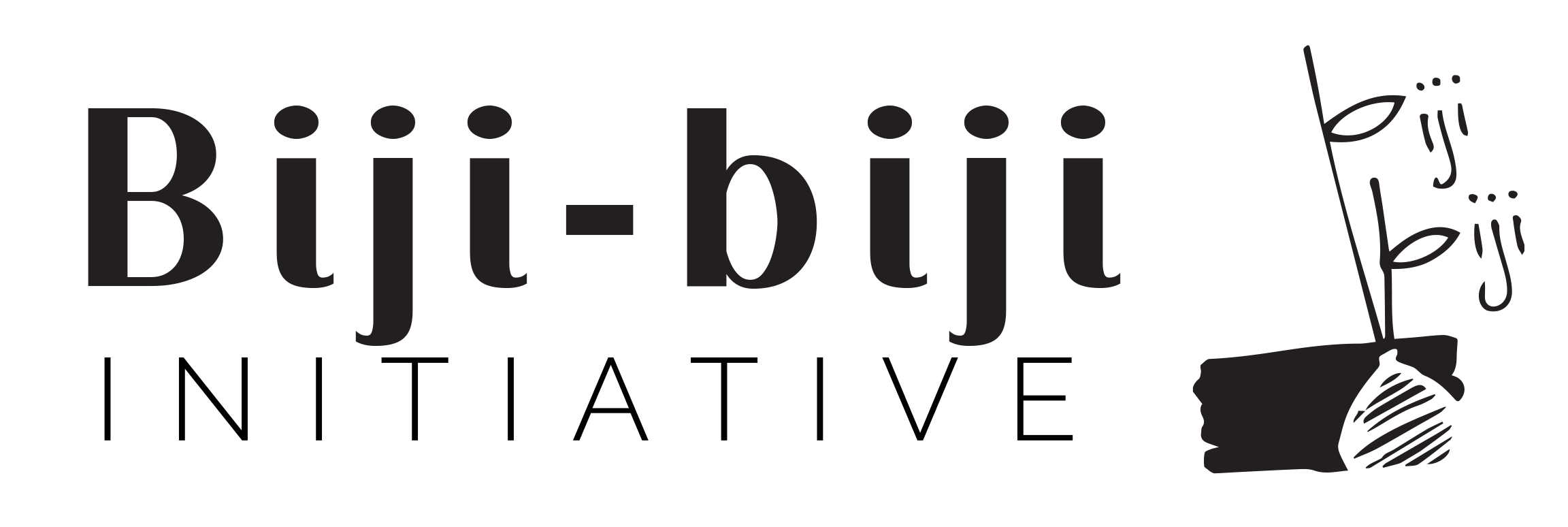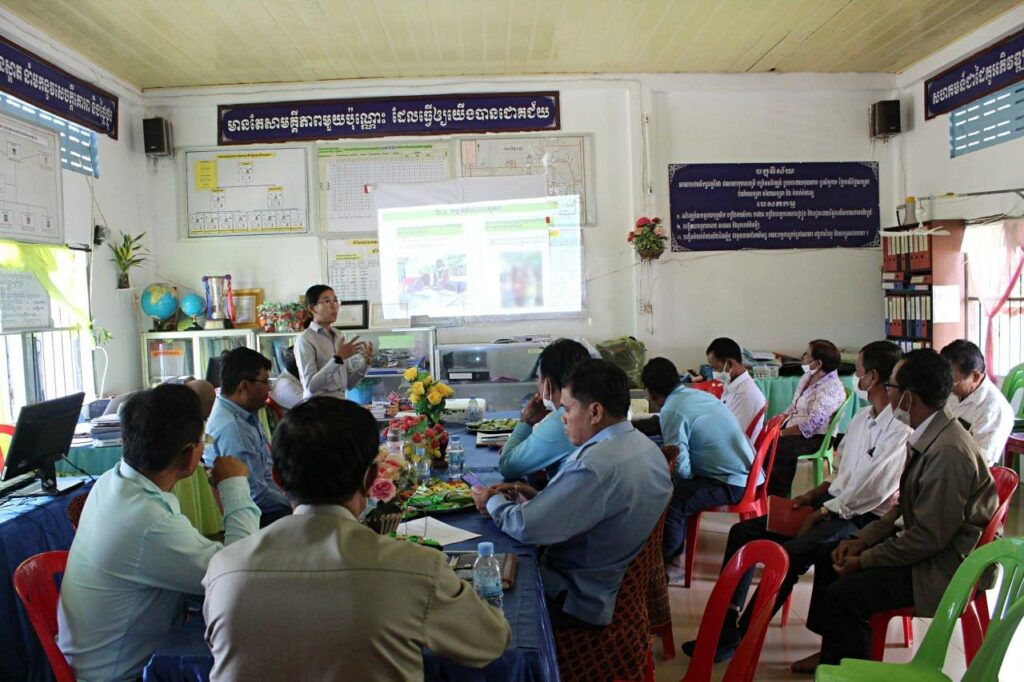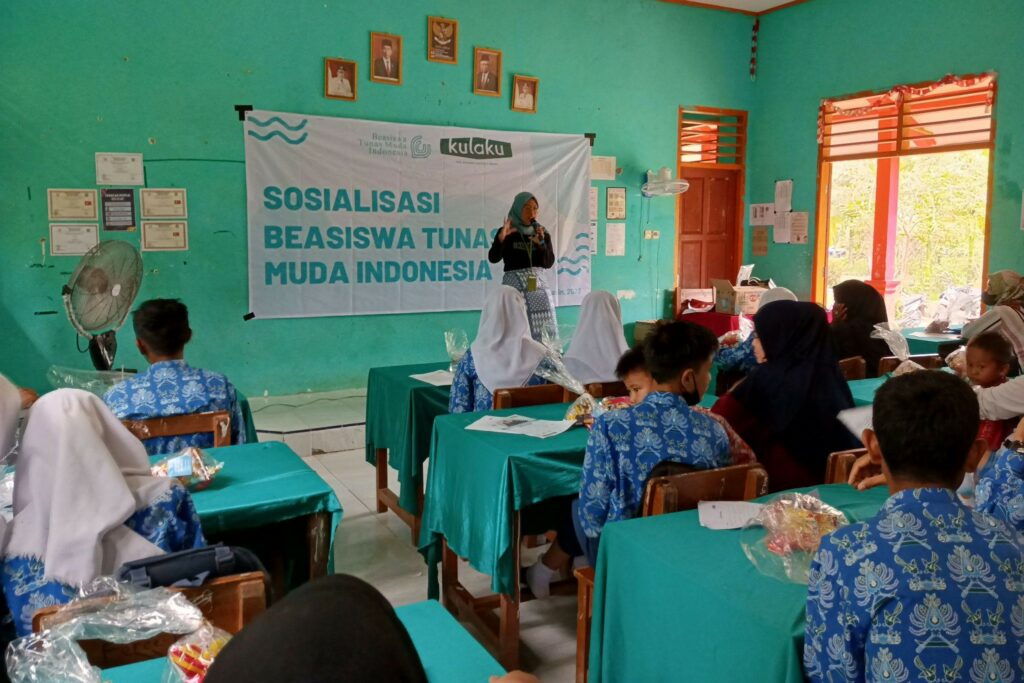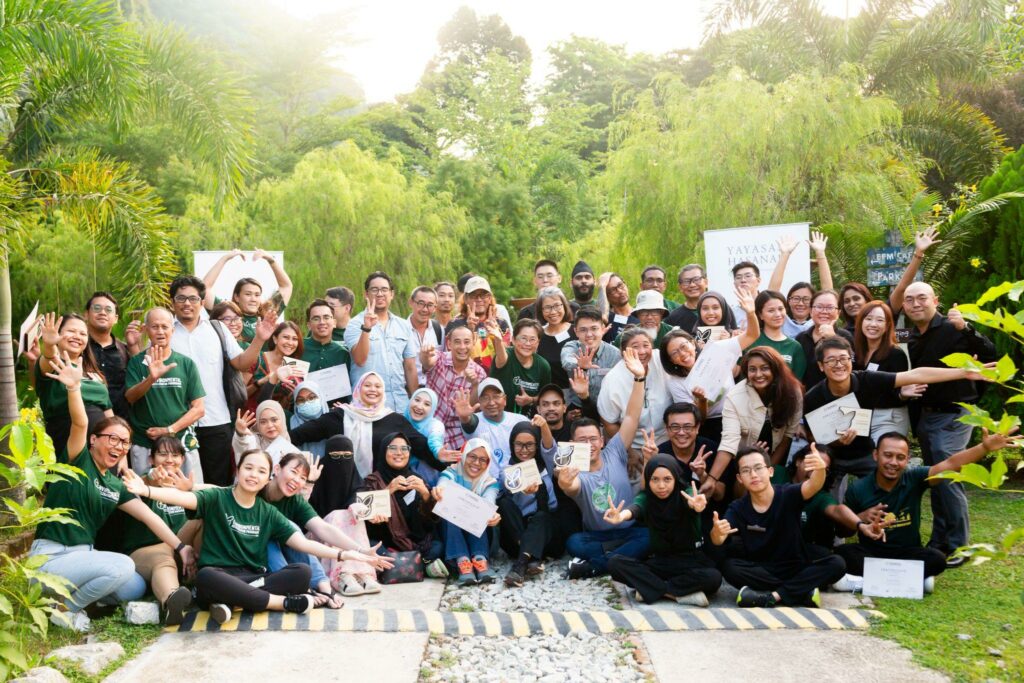By: Ruthravathy Tenaigaran
Despite our busy schedules in managing projects, our factory is always open to all curious people to explore. So on 29th August, fourty students from SMK Raja Lumu was welcomed to our Biji-biji Initiative factory in Pandamaran, Klang.
As educating the public is one of our missions to make a social impact, the main objective of this tour is to educate the students on “What We Make”, hence encouraging them to build on their newly formed Kelab Inovasi dan Reka Cipta.
Three stations were exhibited for the students; two being our famous pieces of Energy Playground and the third an invention for addressing plastic waste.
Station 1: Bicycle Juicer
Our Bicycle Juicer uses an energy saving blender that only requires 70W to function (compared to the usual 150W blenders). This is a brilliant way for us to use an alternative energy source than generating electricity from coal and fossil fuel.
The students were excited to have an attempt at pedalling our bicycle juicer, generating adequate energy to blend watermelon. A glass of freshly blended watermelon juice would have required about one minute of pedalling and sweating thus. How much sweeter the juice of your own labour must have tasted.
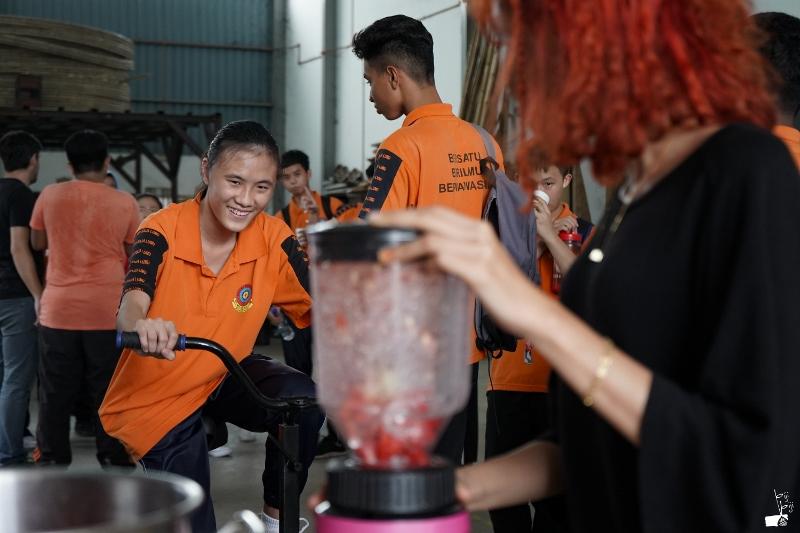
Station 2: Hamster Wheel
Our iconic Hamster Wheel had made an appearance too! Like our bicycle juicer, it produces energy depending on how fast does the wheel spins. In other words, running on the hamster wheel converts kinetic energy into electric energy for immediate consumption.
Seeing a huge Hamster Wheel for the first time surely amazed the students. They truly enjoyed running on the wheel with friends cheering about, no wonder hamsters delighted in running up to 9 km every night on their wheels!
Apart from powering lights, our Hamster Wheel generator is also compatible with phone charger, music amplifier, pixel tower, loT connectivity and other customised installation.
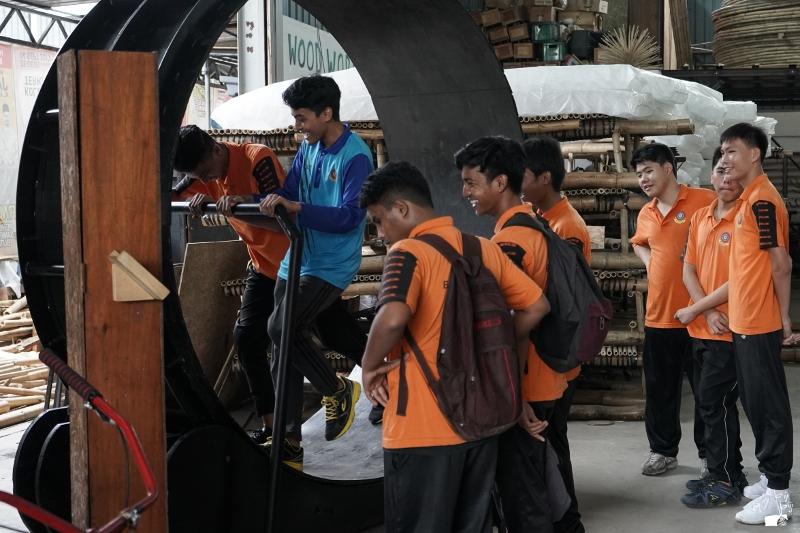
Station 3: Plastic Shredder
According to World Economic Forum by Ellen MacArthur Foundation, there will be astonishingly more plastic in the ocean than fish by 2050. However, this man-made plastic pollution can be helped out with the righteous effort and tools.
Our self-made Plastic Shredder machine at the Micro Recycling Station chops bigger plastics into smaller flakes. This would be the first step of our collective recycling method, followed by extrusion, injection and compression of plastic to form new products.
The possibilities are endless when you can design new things out of used plastics, avoiding consumption of new sources and reducing waste at the same time.
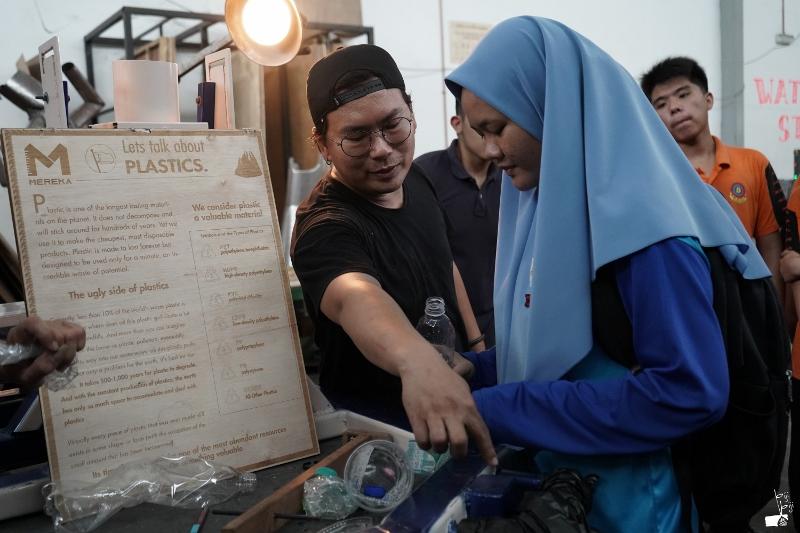
“This is a good exposure for the student to learn and polish up their club. Everything they do in Biji-biji Initiative is very interesting. Truly mind-opening,” exclaimed Ms Jariah binti Yaacob, the club’s advisor.
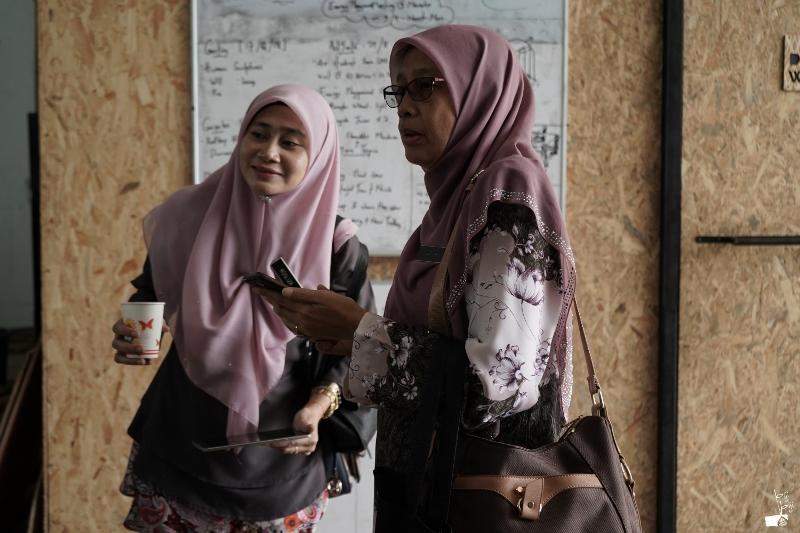
Meanwhile, Mak Jun Yin, the club’s Vice President commented, “The Plastic Shredder is very thought-provoking. I’m sure it’s not easy to build such machine. We definitely need more organization like this to reduce landfill waste.”
Interested to visit us? Feel free to contact us at [email protected] for further details!
